Would you risk your safety on a household repair that could turn deadly in seconds? When it comes to garage door spring replacement, the risks are real and immediate. Let’s uncover why trusting a professional isn’t just smart—it may save your life.
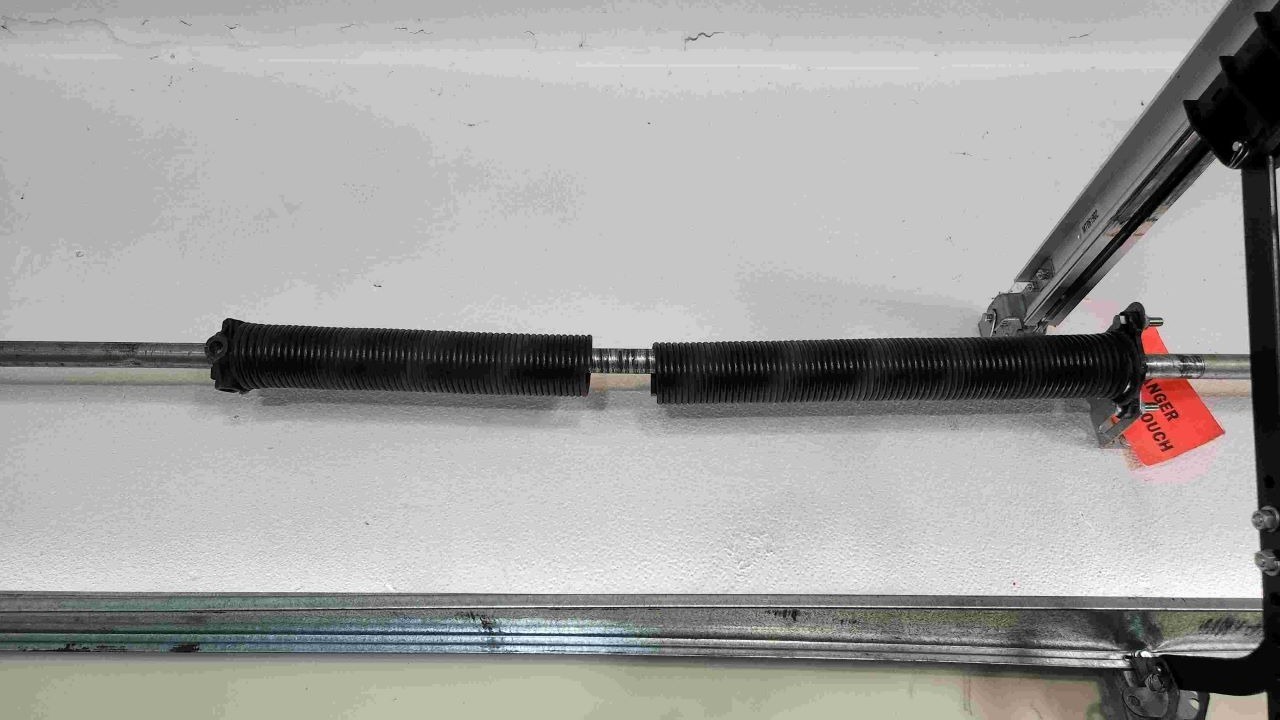
Are You Ready to Risk Your Safety with Garage Door Spring Replacement?
Garage door spring replacement may seem like a straightforward DIY project, but the truth is far more dangerous than most homeowners realize. Garage door springs are under immense tension, responsible for lifting doors that can weigh hundreds of pounds. If you attempt to replace garage door springs without the right knowledge or equipment, a single mistake could cause a spring to snap back with violent force, risking severe injury or worse.
Practical examples abound: what if your garage door refuses to open or there’s a loud, unexplained bang in the garage? It's tempting to grab tools and fix the problem, but garage door spring replacement is not a typical “weekend repair.” Safety cables, proper tools, and precise measurements are all essential for handling high-tension springs. The risks—ranging from lacerations and broken bones to significant property damage—are simply not worth the gamble.
Above all, professional technicians bring experience, specialized gear, and a deep understanding of your door system, ensuring the repair is performed safely and reliably. Before reaching for a wrench, consider what’s really at stake with DIY garage door spring replacement.
What You'll Discover About Garage Door Spring Replacement
Understand the dangers of DIY garage door spring replacement
Learn about proper garage door spring techniques
Recognize the signs of a broken spring
Learn why it’s important to hire a professional for door spring replacement
Garage Door Spring Replacement: The Life-Threatening Risks of DIY
Replacing a garage door spring is not just a matter of tightening a bolt or swapping out a part—it is a complex, hazardous operation. Torsion springs and extension springs each store a massive amount of energy. Mishandling them can lead to catastrophic consequences in the blink of an eye. Homeowners who lack professional training might inadvertently release a spring’s tension, causing it to whip around with enough force to fracture bones or damage property.
Many DIY enthusiasts underestimate the intense stress that garage door springs are engineered to handle. One slip with a wrench, or using the wrong size replacement, can result in the spring unraveling violently. This is why so many garage door repair injuries occur each year—because the risks are both swift and severe. The danger does not only lie in the replacement itself, but also in the incorrect reinstallation, which can compromise the entire garage door system.
When you consider how much stress is placed on garage doors, especially those operated frequently, the risks of DIY spring replacement become even more significant. If your garage door becomes difficult to open or suddenly drops, it's a clear warning that the internal springs may have failed or are about to fail—calling for immediate, professional attention.
How Torsion Springs Make Garage Door Repairs Hazardous
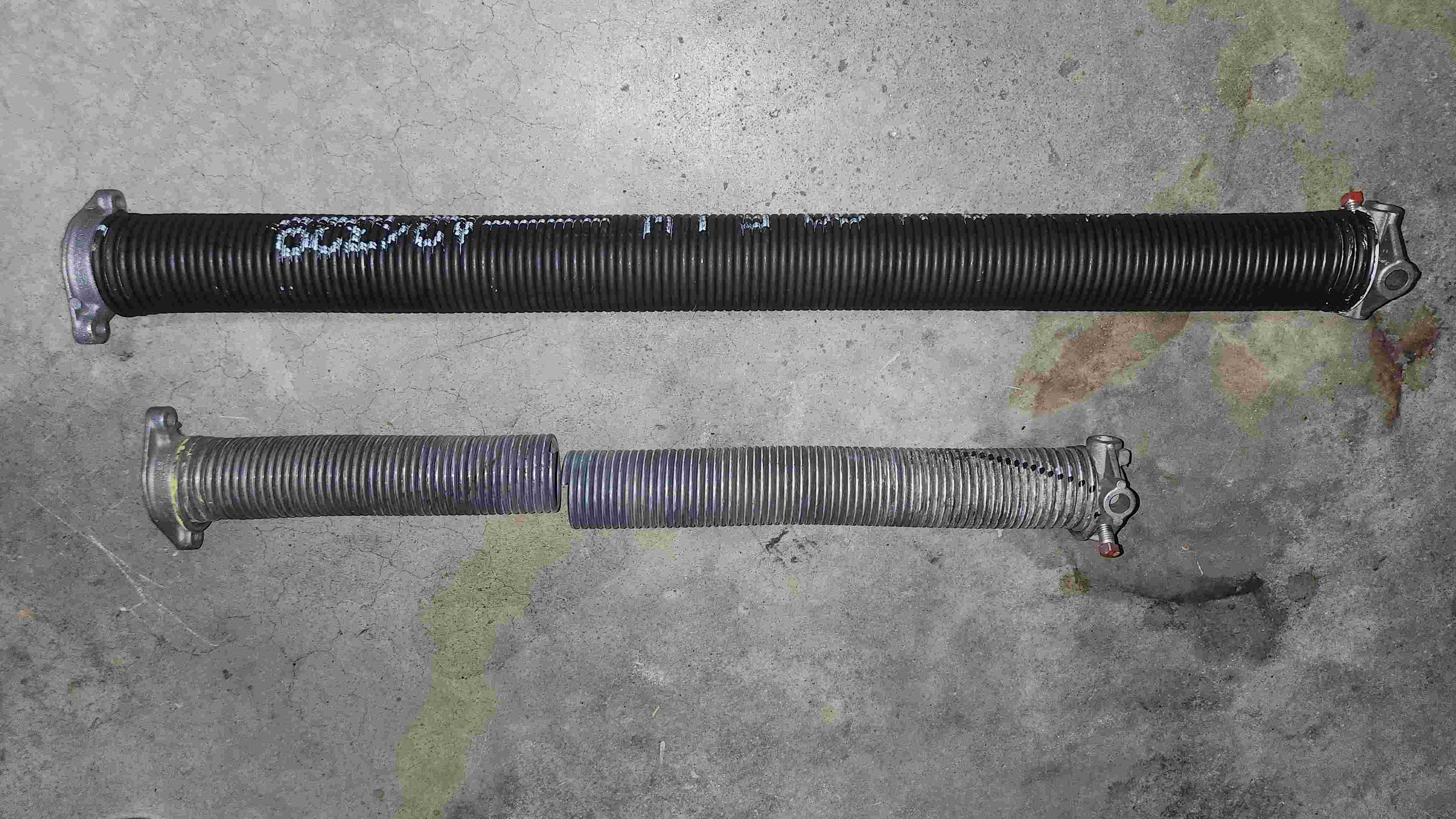
Torsion springs are the most common and most dangerous type of spring used in garage doors today. These springs sit above the garage door and wind or unwind as the door opens and closes, storing dangerous energy throughout. When a broken spring snaps, it can unleash that energy instantly, causing serious injury to anyone nearby. Professional repair technicians use dedicated winding bars and follow step-by-step safety procedures to contain this force—tools and techniques seldom found in the average household toolbox.
The danger amplifies when dealing with garage door torsion springs, as these tightly coiled steel bars are often mistaken for simple hardware. The reality is they collectively support the balance and movement of the door, and their failure can disrupt the entire door system. Using improper tools or unguarded hands may cause the spring to jump the track, potentially injuring or trapping fingers, hands, or limbs.
If your torsion spring is rusty, making noises, or shows visible gaps, it’s time to call for a professional assessment. Remember, replacing or winding a door torsion spring is never worth the risk—always choose trained technicians to secure your family's safety.
The Dangers of Dealing with Broken Springs on Your Garage Door
"Attempting a door spring replacement without the proper tools and training is a recipe for disaster—these components are wound tightly and can snap with deadly force."
When faced with a broken spring on your garage door, it’s vital to avoid any attempts at DIY repair. The stored energy in these springs is released erratically upon failure, posing a grave threat to you, your belongings, and anyone else nearby. Many people underestimate how quickly a garage door can fall if the springs suddenly release.
A door opener is often unable to lift a garage door when the spring has failed, forcing homeowners into risky situations as they attempt to manually open heavy panels. There’s also the danger that the opener itself could become damaged by trying to compensate for missing spring tension, leading to even costlier repairs.
Professional garage door companies are equipped to safely remove, replace, and tune springs under pressure, safeguarding both the system and your loved ones. Don’t let a noisy garage or stuck door trick you into a dangerous “quick fix.”
Common Types of Garage Door Springs and Their Replacement Challenges
If you need to replace garage door springs, knowing their type—and the unique replacement challenges each poses—is crucial. The two main categories are torsion springs and extension springs, and both have drastically different installation procedures, safety concerns, and lifespan expectations.
Torsion springs are usually mounted horizontally above the door and require careful winding with specialized bars, while extension springs run parallel to the tracks and need secure anchoring. A less common, but still significant type, is the clipped-end spring which features increased resistance and requires extra steps during installation. Each variant demands a specific skillset, and using the wrong replacement spring can undermine the entire garage door system.
The identification alone—including proper color code for sizing and tension—can be tricky. Incorrectly matched springs risk unbalanced operation, rapid failure, or dangerous malfunction. This is why a professional assessment is invaluable when dealing with garage door spring replacement.
Torsion Spring vs. Extension Spring—Key Differences in Garage Door Spring Replacement
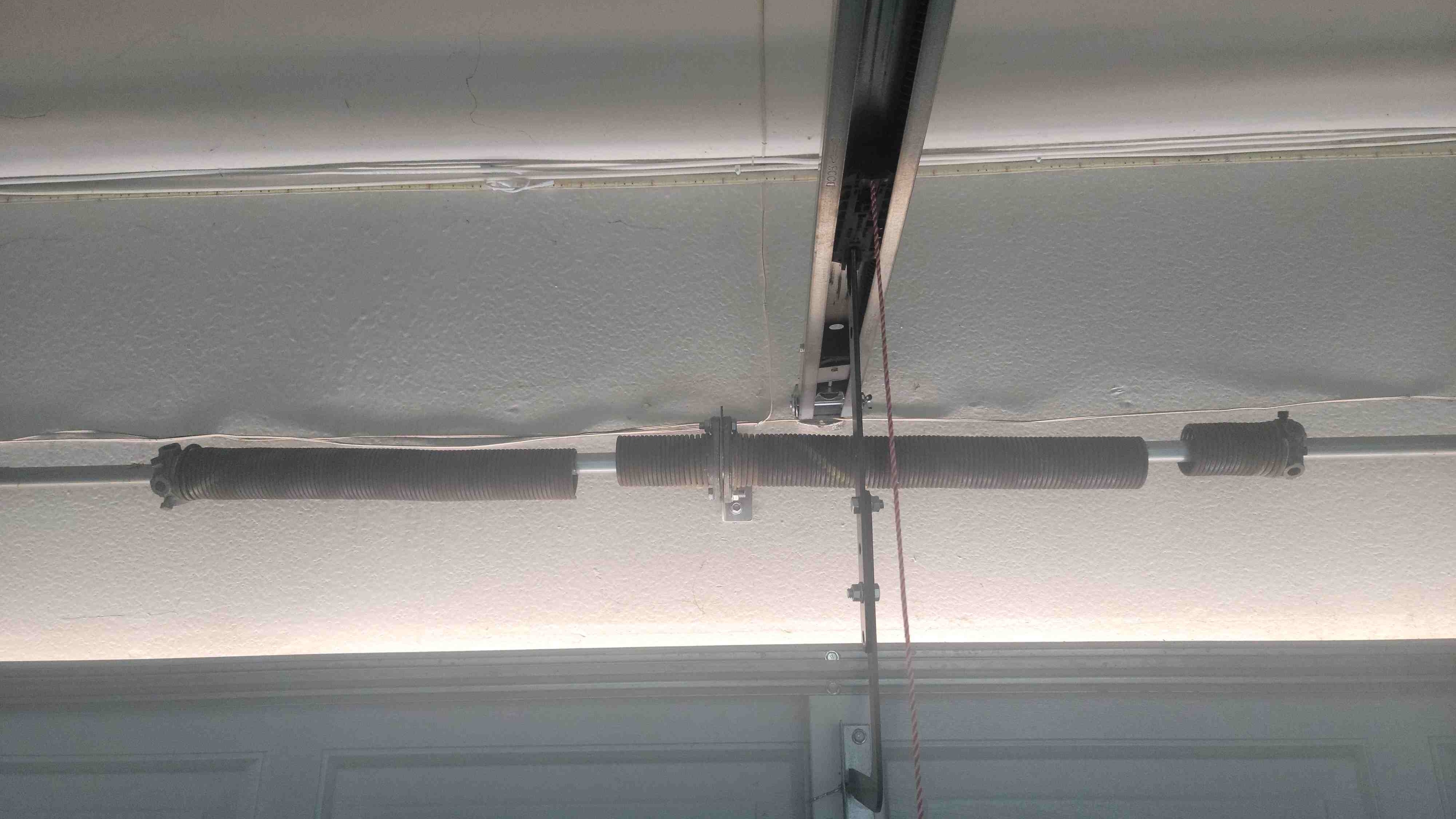
Understanding the difference between torsion springs and extension springs is essential in safe and effective garage door spring replacement. Torsion springs are designed to sit above the closed garage door and twist as the door moves, storing rotational energy. These springs create a smoother, more controlled door movement but require precise installation using tools like winding bars. Extension springs, on the other hand, stretch and contract along the tracks, typically found on lighter garage doors. Both setups use different safety cables and mounting mechanisms.
The replacement process for each type poses its own dangers—inappropriate handling of torsion springs risks abrupt unwinding, whereas extension springs can recoil if safety cables are not correctly installed. This makes replacing a garage door spring a much greater technical challenge than it might first appear. Homeowners must also consider matching the spring's strength to the specific door weight and operating system, which is best left to seasoned professionals.
Incorrectly installed springs can cause garage door openers to fail prematurely or doors to slip off their rails, both of which pose hazards to users and can incur extensive repair bills. Let professionals handle these distinctions for a secure, reliable fix.
Why Identifying the Correct Garage Door Spring Matters for Replacement
Every garage door is unique. The correct spring type, size, and tension must be matched precisely to your door’s weight and operational demands. Using the wrong door spring leads to an unbalanced system—causing the door to tilt, strain the opener, or repeatedly break.
Professionals use charts, manufacturer codes, and hands-on measurements to select and install the exact spring your system requires. If you attempt to select a replacement spring on your own, you might overlook color codes or other specifications, leading to either overpowered or underpowered springs—compromising your system's performance and safety.
In summary, trusting a pro who understands spring ratings, balance adjustments, and installation techniques is the only way to guarantee your garage door system works safely, reliably, and for years to come.
Table: Common Garage Door Spring Types and Their Replacement Complexity
Spring Type |
Typical Lifespan |
DIY Difficulty |
Safety Risk |
|---|---|---|---|
Torsion Spring |
8-15 years |
Extremely High |
Severe |
Extension Spring |
7-12 years |
Very High |
Significant |
Clipped-end Spring |
7-10 years |
Moderate |
Moderate |
Why Garage Door Spring Replacement Requires Proper Tools and Expertise
Attempting door spring replacement without access to proper tools is an invitation for disaster. Professional garage door repair requires much more than a basic socket set—technicians rely on precise measuring devices, winding bars, safety harnesses, and heavy-duty clamps, each designed to safely manage the intense tension present in a typical garage door torsion spring.
The process does not end with putting in a new spring. Balancing, lubricating, and testing the entire door system is critical to reliable long-term performance. Professionals undergo extensive training to develop proper techniques, minimizing risk and ensuring every part is recalibrated for smooth, fault-free operation.
Many untrained individuals lack the technical expertise to recognize structural weaknesses, misaligned hardware, or worn bearings—all of which contribute to spring failures and unsafe operation. Investing in professional service not only prevents accidents but also adds years of life and value to your garage door system.
The Role of Proper Tools in Safe Door Spring Replacement
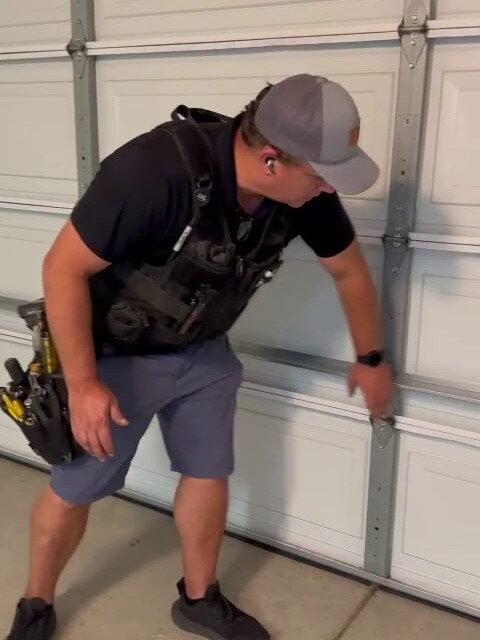
Specialized tools are essential for controlling the energy stored in garage door springs. Torsion springs require winding bars made from hardened steel, not makeshift rods or household alternatives, to minimize slippage and sudden unwinding. Additional equipment like vice grips, ladder stabilizers, and calibrated torque wrenches are used to secure the door and ensure precise tension adjustment.
Using the incorrect or improvised tools significantly increases the risk of hardware slipping, springs snapping, or fasteners failing. Several videos online demonstrate harrowing near-misses, when DIYers attempt to “eyeball” the tension or use basic pliers. In contrast, professional installers prepare each tool and step beforehand, strictly following safety checklists and manufacturer protocols.
A quality repair also involves a final battery of safety tests—verifying that the door opener works seamlessly, the door opens and closes smoothly, and the spring tension is perfectly balanced. These tests simply cannot be performed accurately by amateurs.
Professional Techniques for Secure Garage Door Spring Installation
Professionals employ established techniques developed through years of hands-on experience. They begin by disconnecting the relevant garage door opener or motors to remove load from the system. Safety cables, clamps, and locking pliers are positioned in precise locations to keep the door firmly in place during the entire replacement process.
Installation of the new spring is followed by careful winding or stretching to the correct specifications, with ongoing tension checks at each step. Pros also inspect the entire garage door system for misalignments, worn hinges, or track warping that could lead to premature failure. Only after multiple tests for balance and safety will the garage door be returned to regular service.
This workflow ensures not only a functional garage door but also peace of mind, knowing your system is safe for you and your family to use every day.
Recognizing When You Need Garage Door Spring Replacement
Knowing when your garage door needs immediate spring replacement is vital for household safety. Ignoring the warning signs—or continuing to use a damaged system—can quickly escalate into a dangerous situation. If your garage door refuses to lift, you hear alarming noises, or you notice visible wear on the door spring, call a professional right away.
Attempting to operate a door with a missing or broken spring can overload the garage door opener and cause the entire assembly to collapse. Fast action protects everyone in your home from injury and spares you from expensive structural repairs.
Pay close attention to your door’s performance. If raising or lowering the door suddenly requires more effort, the springs may no longer be providing adequate support—a clear signal that professional spring replacement is overdue.
Signs of a Broken Spring: When Should You Replace Your Garage Door Spring?
Garage door won't open
Loud bang from the garage
Visible gap in the door spring
Door opener suddenly straining or failing
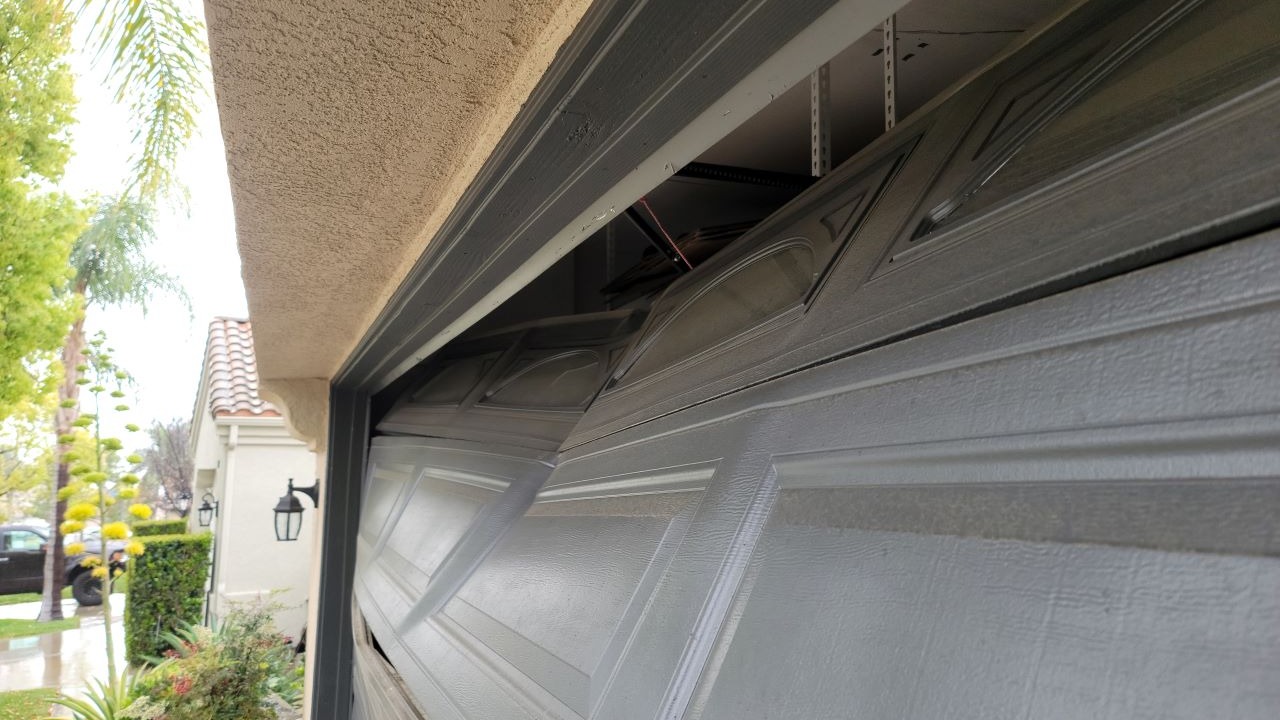
The Dangers of Continuing to Use a Garage Door with a Broken Spring
"A broken spring is more than an inconvenience—it can cause the entire door to suddenly fall, risking serious injury to anyone nearby."
A broken spring may seem like a minor inconvenience, but in reality, it’s a red alert. Continuing to use or attempt to lift a garage door with a missing or malfunctioning spring could result in the heavy door barreling downward unexpectedly. Not only does this pose a threat to people and pets, but it can also cause significant damage to vehicles or stored items in the garage.
Repeated use under these dangerous conditions can further strain the garage door opener and other mechanical parts, creating a domino effect of failures. If you notice any warning signs, immediately pause operation and schedule professional repair—your safety is always the top priority.
Remember, don’t let convenience tempt you. Protecting your property—and more importantly, your well-being—should never be up for negotiation.
What Professional Companies Offer for Garage Door Spring Replacement
A reputable garage door company offers far more than just replacement springs. From careful diagnostics and precise measurements to comprehensive safety checks, certified professionals guarantee a complete, high-quality repair. Their services typically include the installation of the correct replacement spring, adjustment and balancing, thorough lubrication, and a final assessment of all moving components.
Additionally, trustworthy companies provide warranty coverage on both parts and labor, giving you peace of mind that minor mishaps or defects won’t turn into major expenses. With emergency same-day service, trained technicians are always available when you need them, and their commitment to safety ensures your garage door system will operate perfectly for years.
Hiring a certified professional also means you’re getting an expert opinion on the condition of your overall garage door system—including cables, hinges, rollers, and tracks. This attention to detail helps prevent additional surprise failures and frustrations in the future.
Choosing a Qualified Local Door Company for Spring Replacement

Selecting the right door company for spring replacement is key to a safe and successful outcome. Look for customer reviews, proper licensing, and proof of insurance—these credentials ensure the company adheres to strict safety standards and ethical business practices.
An established local provider will also offer transparent pricing, clear warranties, and quick response times, making the process stress-free. Don’t hesitate to ask about a company’s experience with your specific type of garage door or request references for similar work.
Ultimately, choosing a professional ensures that your spring replacement not only resolves the immediate issue but also safeguards the long-term reliability of your garage door system.
Benefits of Professional Garage Door Spring Replacement vs. DIY
Professional installers bring a wealth of expertise to every service call—they can identify and address hidden problems before they escalate, apply manufacturer-approved repair techniques, and use high-grade equipment for every step of the process. Their training minimizes the risk of accidents, and every detail from color code matching to final tension checks is carefully managed.
Choosing a professional over a DIY approach is about more than convenience—it’s about preventing personal injury, costly mistakes, and future breakdowns. Professionals deliver peace of mind, faster repairs, and coverage against the unforeseen.
In contrast, DIY efforts often miss critical factors such as weight balance, alignment, and compatibility, meaning even a seemingly “successful” repair may fail shortly after, posing new dangers all over again.
Cost Factors for Garage Door Spring Replacement
The cost of garage door spring replacement varies based on several factors—the type of spring, whether one or both springs need replacing, the complexity of your garage door system, and your geographic location. Additional expenses may include service calls, emergency repairs, and inspection fees.
While DIY kits may seem less expensive, they rarely factor in the need for specialized tools, potential damage repairs, or the high personal cost of injury. With professional installation, you receive not only the correct parts but also workmanship guarantees and the assurance that your system has been comprehensively serviced.
The following table outlines typical price ranges for commonly requested garage door spring replacement services:
Service Type |
Average Cost (USD) |
|---|---|
Single Torsion Spring Replacement |
$120 - $250 |
Both Torsion Springs Replacement |
$200 - $400 |
Garage Door Inspection Fee |
$50 - $75 |
Emergency Service |
+$50 - $100 |
People Also Ask: Garage Door Spring Replacement Questions
How much does it usually cost to replace a spring on a garage door?
Expect to pay between $120 and $400 for garage door spring replacement, depending on the type of spring and your location. Professional service includes parts, labor, and often a warranty.
Can I replace a garage door spring by myself?
Replacing a garage door spring yourself is highly dangerous and not recommended. Without proper experience and tools, you risk severe injury or property damage.
How do I know what spring to buy for my garage door?
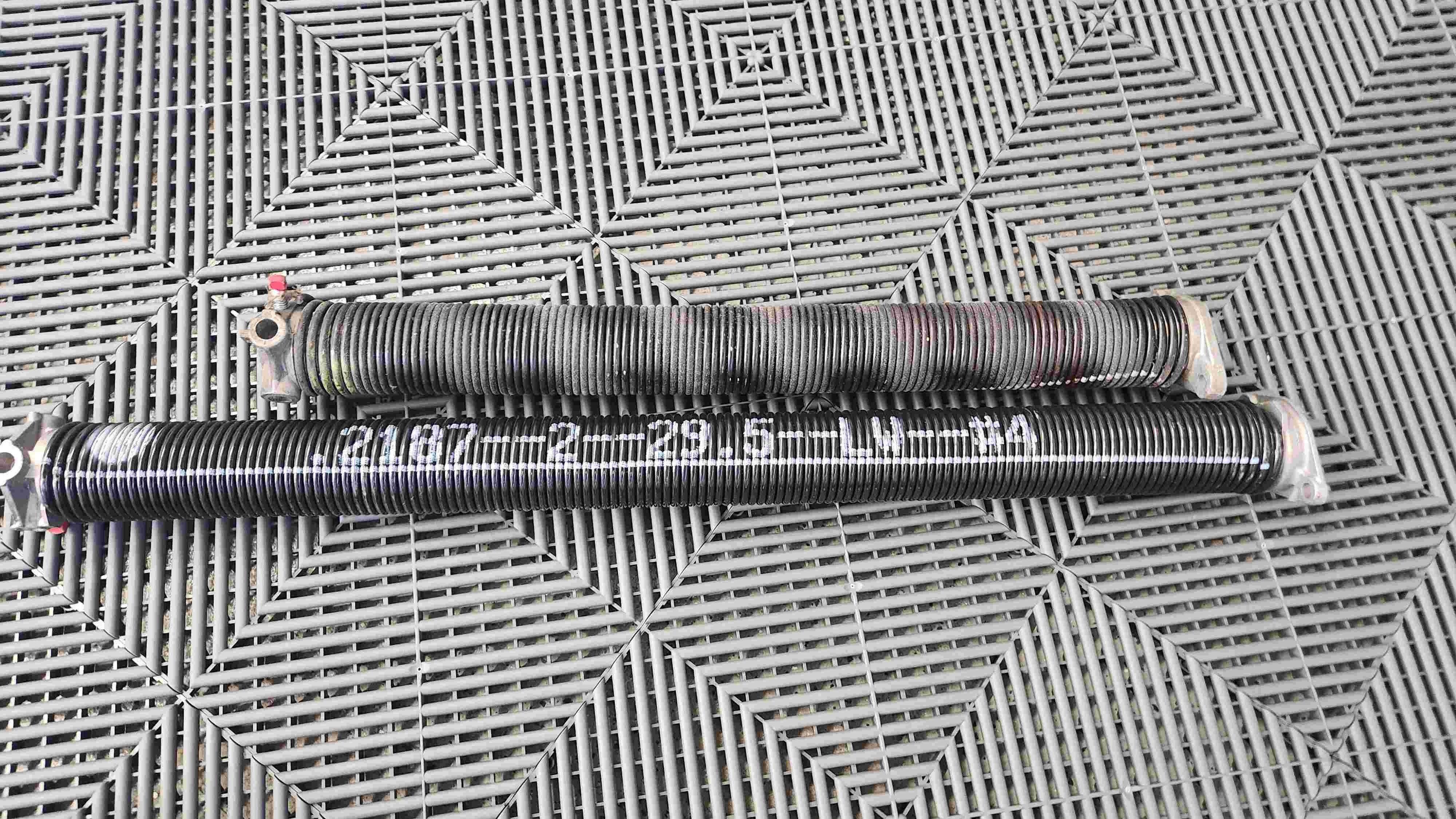
You must match the spring type and size to your specific garage door model. Professionals have the experience to choose the correct torsion or extension spring and ensure it’s safely installed.
Does Home Depot repair garage door springs?
Home Depot sells garage door springs but usually does not offer in-home spring replacement. Always consult a licensed garage door company for installations.
Frequently Asked Questions About Garage Door Spring Replacement
Is it safe to replace garage door springs without professional help?
No, replacing garage door springs without the appropriate tools and knowledge is extremely dangerous, posing serious risks of injury or property damage.How long does it take to replace a garage door spring?
A professional can replace a garage door spring in about one to two hours, including safety checks and system calibration.What happens if I use the incorrect spring for my door?
Using an incorrect spring can cause imbalance, quick failure, and dangerous operation, potentially damaging the opener and putting users at risk.Do garage door openers need to be disconnected before spring replacement?
Yes, safe garage door spring replacement always involves disconnecting the opener to relieve system tension and prevent accidental activation.
Key Points: Why Garage Door Spring Replacement Is Not a DIY Project
Springs hold significant tension that can cause severe injury
Professional tools and expertise are necessary for safe spring replacement
Incorrect installation leads to property damage and personal harm
Hiring a door company ensures safety, reliability, and warranty coverage

 Add Row
Add Row  Add
Add 

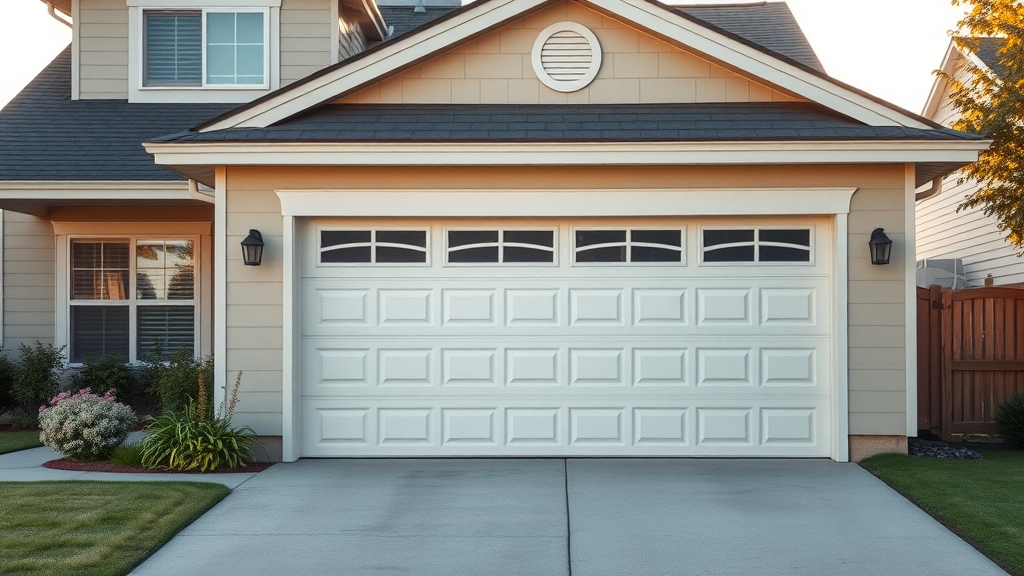
Write A Comment